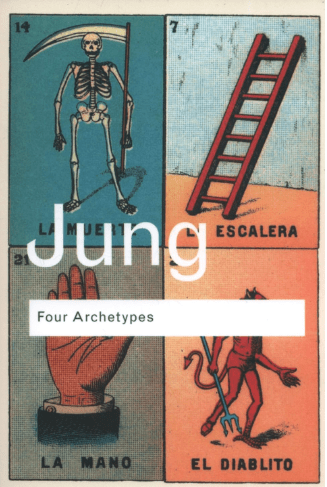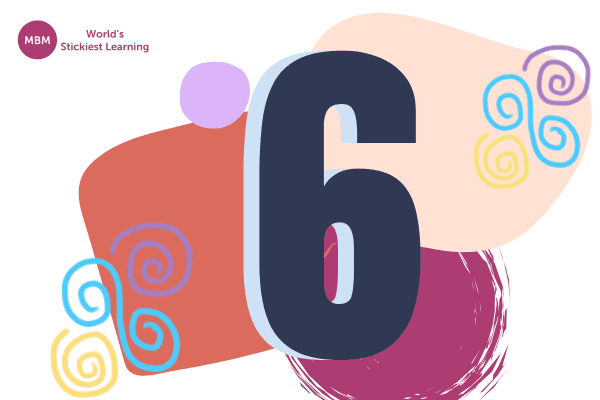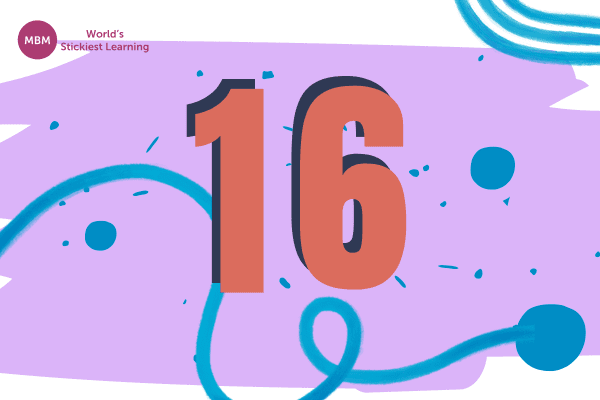Decoding Your Employees for Productivity Potential
The Jung Personality Test emphasises that no two employees are the same, even if they have similar credentials and experience.
These variations make up the basis of every individual’s unique personality. And testing them can help you unlock a trove of information that will boost your employees’ workplace productivity.
In this article, I will explain the Jung Personality test and how it can be applied at any stage of work life. But first, let me give you a basic background.
What Is Personality?

Your personality is a sum of three things: emotional, behavioural, and cognitive characteristics. These influence your thinking patterns and adaptation to circumstances, people, and the environment.
In simple terms, personality describes who you are by how you behave, relate to other things, feel, and respond.
Let’s assume you prefer to spend more time indoors than socialising with friends and family. Over time, people will notice your withdrawal from society and conclude you’re an introvert—we’ll talk more about this later.
In some cases, what you show outside might not really describe your true self. Carl Jung describes this as an overarching influence of archetypes such as Persona, also called Mask, in his book The Four Archetypes.

Starting from birth through adolescence, societal values and norms shape how you respond and adapt to situations. The effect of this is that you’re forced to live according to preset standards and not how you want to express yourself – whether in thoughts or behaviour.
So, you’re practically wearing a social mask that could shield away your inner consciousness and make people see “you that’s not totally you.”
Other archetypes, such as Shadow and the Animus/Anima also influence a person’s personality.

What Is the Jung Type Indicator?
Jung-type indicator or Jung personality test is an assessment system that measures an individual’s preferences. Then it assigns a pre-categorised personality based on Jung’s theory.
Practically, Jung’s personality test provides objective and standardised results. This makes it reliable but not 100% accurate in all situations.
For instance, an employee could supply false information when asked to grade relationships with others. Furthermore, errors could come from the environment where the test is administered or the interpreter.
Scales And Formats Of Jung Personality Test
Jung personality tests come in different outputs and ranking scales. For scales, we have:
- Likert scale: Participants indicate their level of agreement or disagreement over a statement or scenario using “strongly agree, agree, neutral, disagree, strongly disagree.”
- Semantic Differentials: This scale rates a participant’s level of agreement or disagreement with opposite continuum such as “organised-disorganised, decisive-indecisive, outgoing-reserved.”
- Forced Choice: Respondents only have a pair of options to choose from. This makes it impossible to maintain neutrality.
- Open-ended: Participants can express themselves flexibly and demonstrate preferences through unrestricted answers.
- Ordering or Ranking: A list of choices is given, and the respondent is asked to arrange them based on preference. This provides insight into a participant’s priorities given a situation.
Similar to scales, Jung’s personality test formats vary and includes:
- Paper and pen format.
- Web-based platforms.
- Interview-based format.
You can use any of these scales and formats depending on the goal you want to achieve.
For instance, an interview-based test is useful to gauge an applicant’s on-the-spot response to situations. And it can also provide a more personalised assessment experience.
On the other hand, you can use web-based testing for remote employees and self-assessment.
Before discussing the implementation of the Jung personality test at the workplace, let’s find out what the Jung personality theory is.
Sticky Learning ® is 7 times more effective than 1-day training courses. Plus, you will get a Chain of Evidence proving your Return on Investment. Discover soft skills training that changes behaviours long term.

What Is Jung’s Personality Theory?
In the 1920s, Carl Jung, a Swiss psychiatrist and psychoanalyst, founded analytical psychology. He disagreed with the concept that the human mind is blank at birth. And he believes that there are some collective unconscious or traits inherited/shared as a species.
Carl Jung also said different psychological functions, such as sensing and intuition, make up the human personality. These functions, in turn, contribute to how we respond and behave.
Going forward, he argued that these functions can be expressed introvertedly or extrovertedly. In this case, introverts are people who are socially withdrawn and prefer spending time with themselves. In contrast, extroverts are the exact opposite and prefer busy environments.
However, not all individuals completely fall into the introverted and extroverted category. Some are mainly introverts but can still relate to the outside world to some reasonable extent. These sets are Ambiverts.
The Six Modified Psychological Functions Of Jung’s Theory

Jung primarily provided four psychological functions: sensing, feeling, thinking, and intuition. Isabel Briggs Myers and her mother, Katharine Cook Briggs, added perceiving and judging functions in the early 20th century to create the Myers-Briggs Type Indicator (MBTI).
● Feeling:
People in this category rely on subjective details and rational emotions. This helps them prioritise relationships when making decisions. However, “Feeling” is different from “Affect,” which Jung considered irrational.
● Sensing:
These sets of people make decisions based on what they can observe or see at the moment. Their argument follows tangible information acquired through the five senses. So, if it’s not there, any other argument is invalid and unacceptable.
● Thinking:
Thinking involves making decisions based on logical and unbiased details. These people focus on data-backed facts over emotions, thus valuing accuracy and consistency.
● Intuition:
Intuition digs deeper into the unconscious realm. And it involves trusting in gut instinct rather than tangible perceptions, as seen with feeling and sensing. These individuals follow their hunches to resolve situations and make complex decisions.
● Judging:
These individuals prioritise a systematic approach to situations. This goes as far as following a project timeline template and preset guides to achieve certain work goals.
● Perceiving:
People who perceive tend to follow a more drawn-out process. And they enjoy biding their time to collect more information, even if it means delaying making a decision. This makes them more curious, creative, and flexible to new data inputs.
Now back to Jung’s personality test. Jung used these psychological functions to categorise people into pairs, which include:
- Introverted (I) Vs. Extroverted (E)
- Sensing (S) Vs. Intuition (N)
- Thinking (T) Vs. Feeling (F)
- Judging (J) Vs. Perceiving (P) – later included by Isabel Briggs Myers
So, you can determine a person’s personality by one preference from each of the pairs above.
For instance, ISTJ means you are an Introvert and have the Sensing, Thinking, and Perceiving type of functions. By interpretation, that means you are socially withdrawn, detail-oriented, and analytical. Moreso, you’re likely to make clear-cut decisions with a high degree of reliability.
16 Types Of Jung Personalities

Based on the variations in each individual’s psychological functions, Jung deduced eight personalities. Later, when Isabel added “judging” and “perceiving,” the list grew to sixteen personality tests. Doing a Jung personality test would let you know which of the sixteen personalities relates to you. Let’s explore these in detail.
1. Introverted, Sensing, Thinking, Judging (ISTJ)
Individuals in this category are Inspectors. They are organised, detail-oriented, committed, and responsible. In real-life situations, such as during job applications, they pay attention and proactively fix even the smallest errors, such as grammatical mistakes on their resumes, which increases their likelihood of being hired, according to HR statistics.
2. Introverted, Sensing, Feeling, Judging (ISFJ)
Nurturers are caring and act as emotional support for others even though they might be struggling or feeling reluctant to seek help for themselves.
3. Introverted, Intuitive, Feeling, Judging (INFJ)
The Counselor types prioritise their emotion and gut instinct. This makes them suitable for pushing advocacies to achieve certain goals and driving changes in the world. They also provide emotional support and guidance for others.
4. Introverted, Intuitive, Thinking, Judging (INTJ)
These are often called architects due to their analytical mindset. They are also objective and able to connect the dots for innovations.
5. Introverted, Sensing, Thinking, Perceiving (ISTP)
People with the mechanic personality are independent and thrive in dynamic environments. They are also observant, analytical, and are willing to try out new things.
6. Introverted, Sensing, Feeling, Perceiving (ISFP)
Composers or artists connect with their environment and express emotions through outlets such as music. They also sync beautifully well with arts and nature.
7. Introverted, Intuitive, Feeling, Perceiving (INFP)
The healers are empathic to the situation of others around them. People with this personality are likewise imaginative. And they make most decisions based on personal values and ethics.
8. Introverted, Intuitive, Thinking, Perceiving (INTP)
Thinkers take a logical decision-making and analytical approach to everything. Due to their introverted nature, they are able to spend more time devising out-of-the-box solutions.
Now let’s go onto the more extroverted results from the Jung personality test. You’ll notice these begin with the letter ‘E.’
9. Extraverted, Sensing, Thinking, Perceiving (ESTP)
Dynamos, also persuaders, exude a natural aura that helps them convince others through logical and good use of social cues. They also live by the moment and can make quick decisions.
10. Extraverted, Sensing, Feeling, Perceiving (ESFP)
The performer is a mix of emotion, moment, and sixth senses thus making individuals with this personality pragmatic. This set of people is extremely social and loves to take centre stage with much optimism.
11. Extraverted, Intuitive, Feeling, Perceiving (ENFP)
Champions possess strong leadership abilities. They are also imaginative and can inspire others with innovative, creative ideas.
12. Extraverted, Intuitive, Thinking, Perceiving (ENTP)
Debater types have strong desire to argue analytically, challenge perspectives, and engage in complex discussions to discover new perspectives and ideas.
13. Extraverted, Sensing, Thinking, Judging (ESTJ)
Directors or executives with strong leadership skills are capable of leading the whole team to achieve preset goals. This type of person is a must-have for an organisation that requires goal-oriented executives.
14. Extraverted, Sensing, Feeling, Judging (ESFJ)
These are the caregivers, characterised by their empathic focus on the needs of others. They primarily find fulfilment in helping people while socialising to create new bonds.
15. Extraverted, Intuitive, Feeling, Judging (ENFJ)
Teacher types prioritise guiding students and providing every necessary support to ensure their success. They also act as givers and practice selfless giving through various means to the development of others.
16. Extraverted, Intuitive, Thinking, Judging (ENTJ)
These are commonly referred to as Commanders due to their assertiveness and drive for success through strategic thinking. They also excel as leaders and are suitable for roles requiring fast decision-making.
Significance Of Jung’s Theory In Personality Testing
You may be wondering why the Jung personality test. Jung’s theory provides a broader lens and basis of assessment, unlike other tests such as the Enneagram and the Big Five personality test.
First off, the theory acknowledges our collective unconscious, ego, and the conscious. This leaves no aspect of the human psyche out.
Secondly, each personality derived from these considerations has undergone permutations to include every possible preference.
And in situations where there’s a mis-normal, you can still find a relative personality type within the sixteen.
Why You Should Do A Jung Personality Test

People with Introverted, Intuitive, Thinking, Perceiving (INTP) personalities are usually critical thinkers, but that doesn’t make them good leaders since they prefer shutting in their ideas. This is an essential pointer hiring managers can use when replacing ranks or interviewing new talents.
Besides recruitment, the Jung Personality Test can be done for the following reasons:
1. Self-awareness and Personal Development
Introverted or extroverted, we all want to know how far we’ve grown and what areas we are doing just well. You can use the Jung personality test to determine your employees’ deficiencies or weaknesses and strengths. The result also shows where they can still improve, and individual opportunities to leverage for growth.
2. Career Exploration And Development
Career exploration helps you determine the right path before entering the job market. You definitely want to go down a lane that matches your personality and allows for continuous development with the best work benefits instead of a role that will eventually stunt your growth. For instance, someone with the ESTJ (Extroverted, sensing, thinking, judging) personality type knows they’re best suited for executive roles.
3. Team Building And Communication
Team building and communication are only possible when you know the personality of each member. You can figure out which employee is socially withdrawn and prefers to work in a silo instead of as a team by using the Jung personality test. Then, your strategic measures to fix the gap can come in.
4. Leadership Development
Executive roles are vital to your company’s success, so you have to prepare ahead and provide suitable replacements proactively. To do that, you should use Jung’s personality test to figure out which of your employees can handle leadership roles and which ones can manage a team.
Using The Jung Personality Test Right
Jung personality test offers a near-accurate assessment of your personality. And it is useful for highlighting your preferences and dominant psychological functions.
However, the results are not 100% and you shouldn’t use them as a standalone definitive test for human personalities.
For instance, the Introverted, Intuitive, Thinking, Perceiving (INTP) trait indicates a good thinker but not a team leader. But that doesn’t mean such a person cannot be trained in leadership roles.
Wrapping Up On Jung Personality Test

Every individual’s personality is unique and tells us a thing or two when tested using Jung’s personality theory.
For one, hiring managers can use them to screen applicants for suitable talent. Other applications are seen in relationship counselling, leadership development and replacement, and team building.
Lastly, the Jung personality test should not be used as a definitive index in making crucial decisions, especially those pertaining to health, due to the slight risk of inaccuracies.




